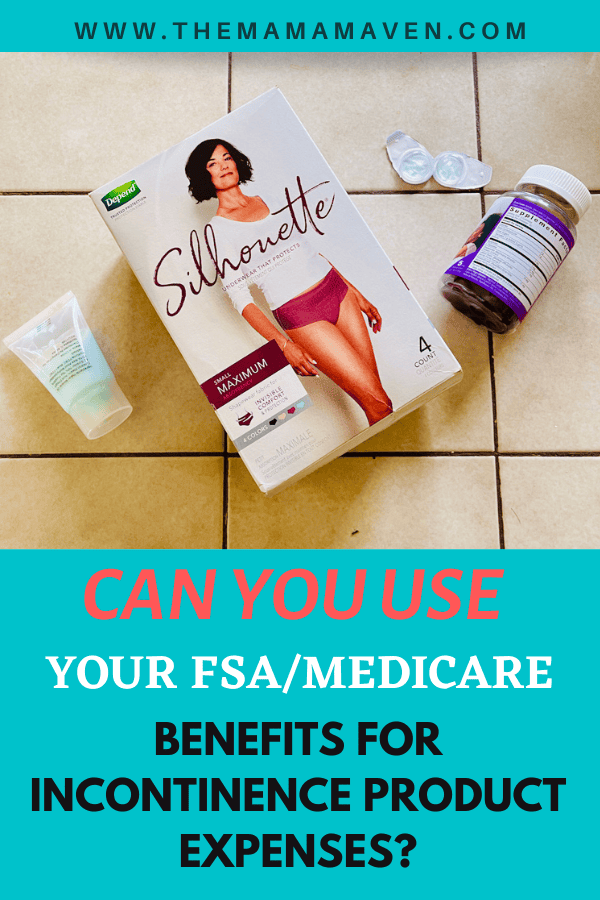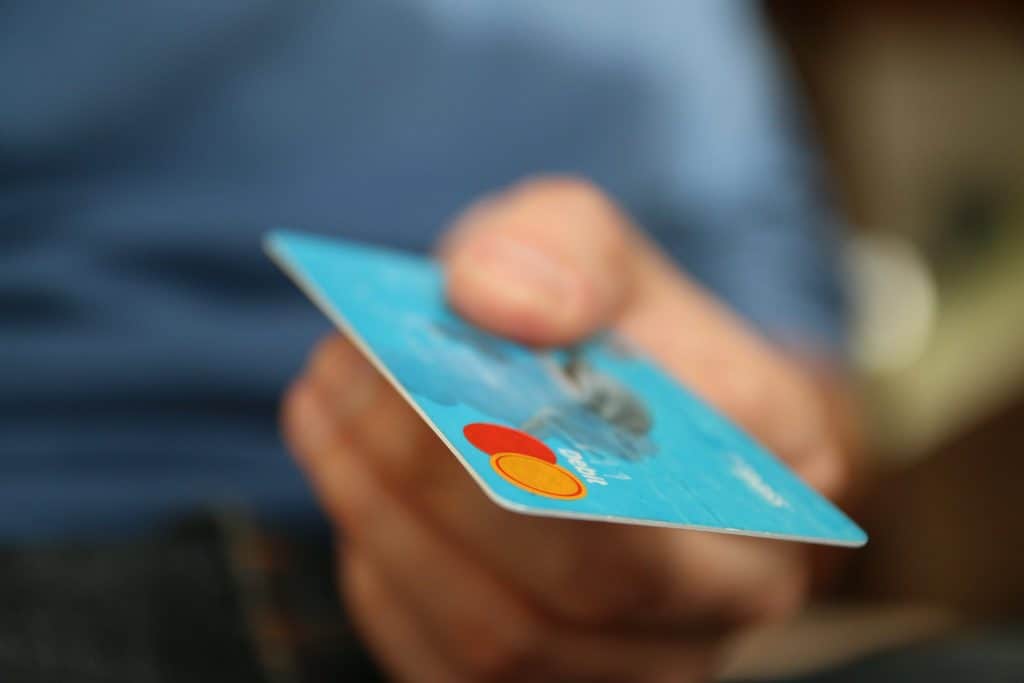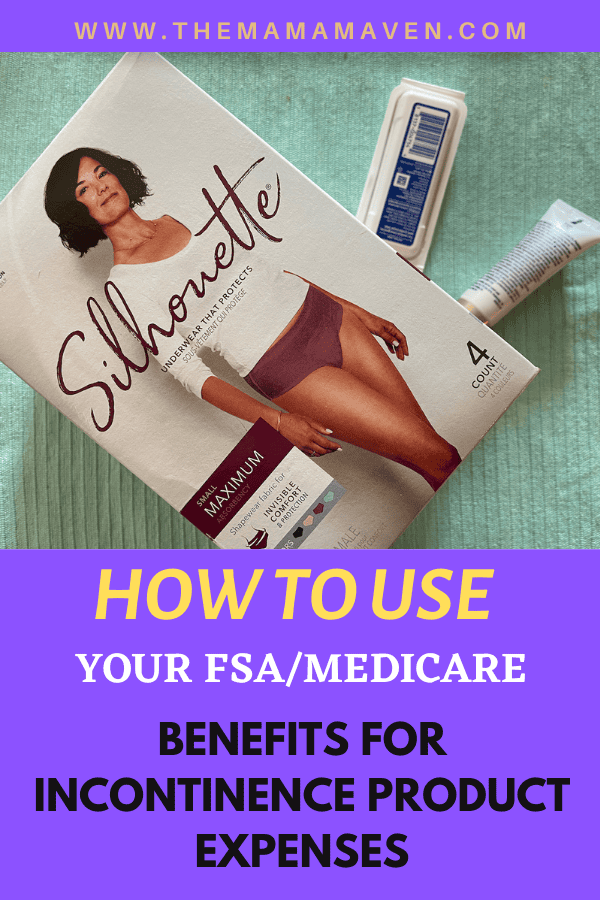This post is sponsored by Depend, but as always, all opinions are my own.
I’m pretty open with the fact that I have incontinence issues. One of the biggest reasons why I am open about it is so that I can help other people who may be experiencing incontinence and may not be as open about it. While it may be a hard thing to talk about, 65 million people in the US have experienced bladder leakage, according to Kimberly-Clark data. Some people may be looking for help and guidance from someone and hopefully I can be that voice. But one thing I haven’t talked about in my posts, is the cost. It can add up. But what can you do? Can you use your FSA or Medicare benefits for incontinence product expenses? Do you do that? I do!

FSA Card VS HSA Card?
If you’re not sure what an FSA is, it’s a flexible spending account. “An FSA is an employer offered benefit, which lets you set aside tax-free money so you can save on qualified health purchases including OTC products, prescriptions, vision health essentials and much more. FSAs are employer-sponsored and are owned by your employer, so you’re only eligible to participate if your employer offers the option… The IRS decides which items are eligible under FSA plans in general, but your employer may choose to limit exactly what your FSA may be used on. Account holders can either use an FSA card for their purchase or use their own debit card and submit receipts with a claim to their administrator for reimbursement.” The good thing is if you shop at a big box store, the register automatically knows what qualifies for an FSA expense and you can use your FSA card to pay for that portion of your bill with it (and then pay for the rest with your regular credit card/cash).

An HSA card is similar. “Health savings accounts (HSAs) are like personal savings accounts, but the money in them is used to pay for health care expenses. You — not your employer or insurance company — own and control the money in your HSA. One benefit of an HSA is that the money you deposit into the account is not taxed. To be eligible to open an HSA, you must have a special type of health insurance called a high-deductible plan.” 2
Besides buying in bulk or looking for sales, I recently started using my FSA card for purchasing Depend. Since it is a medical supply expense, it’s allowed. And did you know you can see your balance for your FSA card online? Your card should be linked to a website that will show you your balance, plus exactly what you can use your FSA card for. Using that website helps me with budgeting for knowing exactly where my FSA dollars are going.
Can you use Medicare Benefits?
If you have Medicare, you need to check your benefits, some plans allow you to be reimbursed. “Traditional Medicare does not cover any incontinence supplies like diapers and pads. However, depending on your financial circumstances and the type of medical insurance you choose, the cost of incontinence essentials may be reimbursed or at least be a tax-deductible expense.” 3
Make sure you check with your plan, because Medicare Advantage plans may cover supplies. “In many states some of the Medicare Advantage plans offered by private insurance companies, like Blue Cross Blue Shield and United Healthcare, do. Usually, you’ll need to purchase qualified items through an eligible provider, a company that has been approved to handle claims and will often process them for you. There are limits to how much product is covered on a monthly basis.” 4
Your plan should be able to walk you through what’s covered and what to do.
Help Others In Need
If you happen to have leftover, unopened incontinence supplies, whether its from you or due to caregiving (I remember we had a lot left over after my husband’s grandmother passed away in 2016), consider donating them to a diaper bank or an organization that can take and distribute them. Due to the pandemic, there are a lot of people that are in need of incontinence supplies and diaper banks and other organizations will help get them to those populations. 5
I found a list of places you can donate incontinence supplies here: https://simonfoundation.org/resources/directory-us-diaper-banks/
If there is nothing local to you, you can give supplies to
Local food banks
Homeless shelters
Senior citizen centers
Women’s shelters
Salvation Army
Goodwill
Assisted living centers/Nursing homes
VFW/American Legion centers
Local town offices
Houses of worship that has a health ministry
(Source: Simon Foundation’s website)

Sources
2
https://www.parentgiving.com/elder-care/incontinence-supplies-covered-by-medicare/
4
https://www.parentgiving.com/elder-care/incontinence-supplies-covered-by-medicare/
5
https://www.nbcnews.com/news/us-news/isolated-alone-nonprofits-see-explosion-need-adult-incontinence-produc-rcna367
Photo credit:
HSA Card Image by Michal Jarmoluk from Pixabay




[…] https://www.themamamaven.com/how-to-use-your-fsa-medicare-benefits-for-incontinence-product-expenses… […]